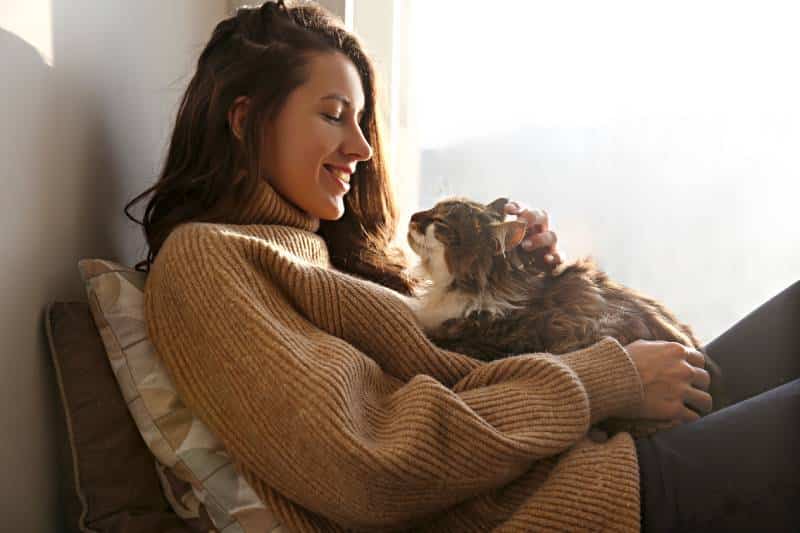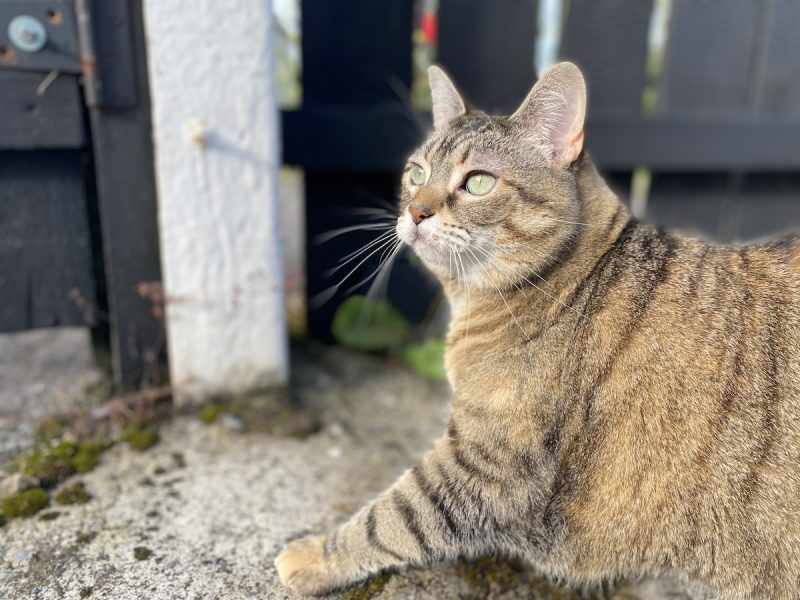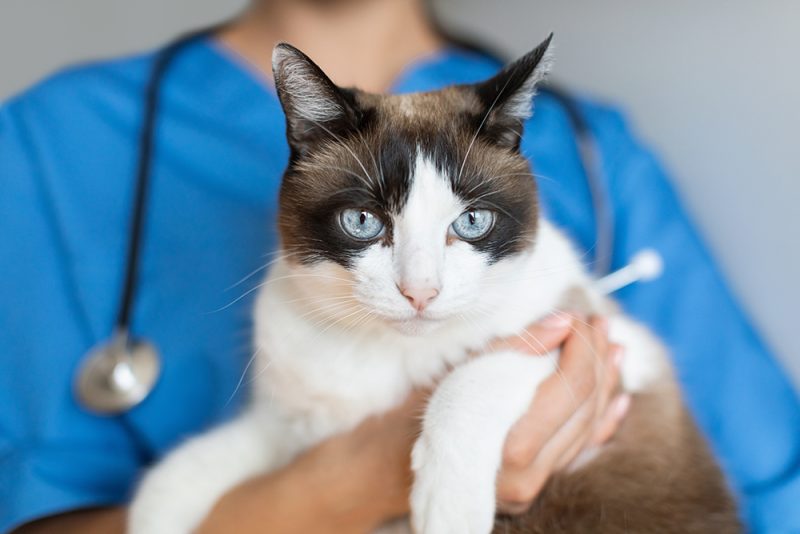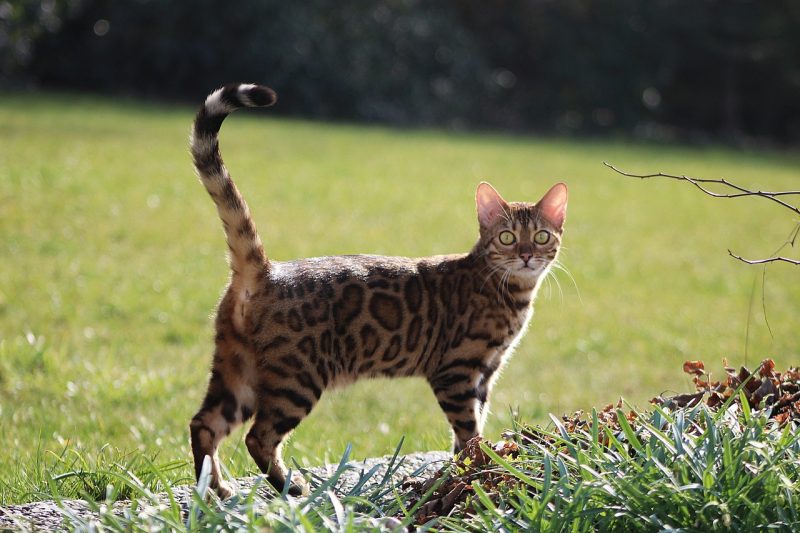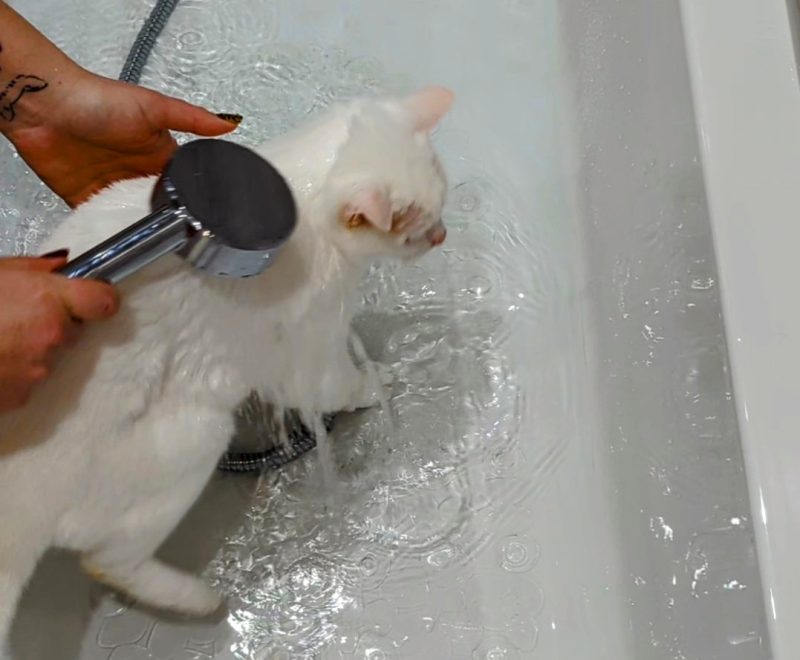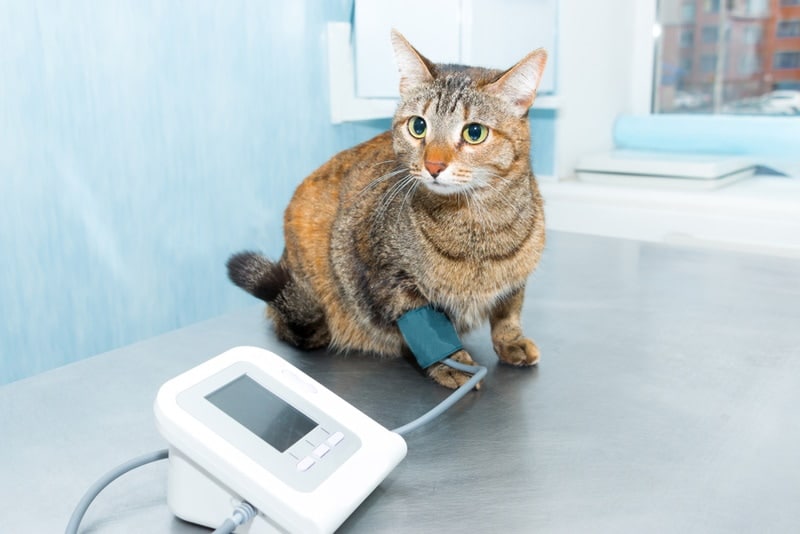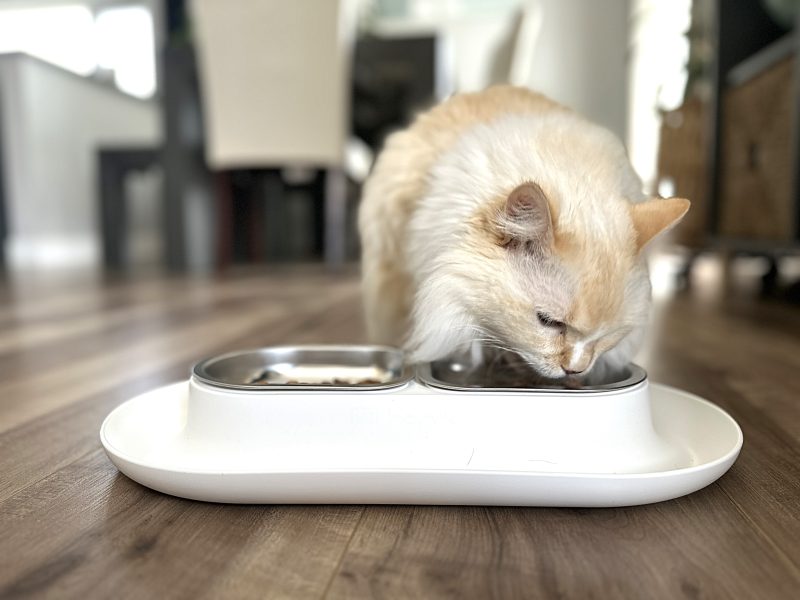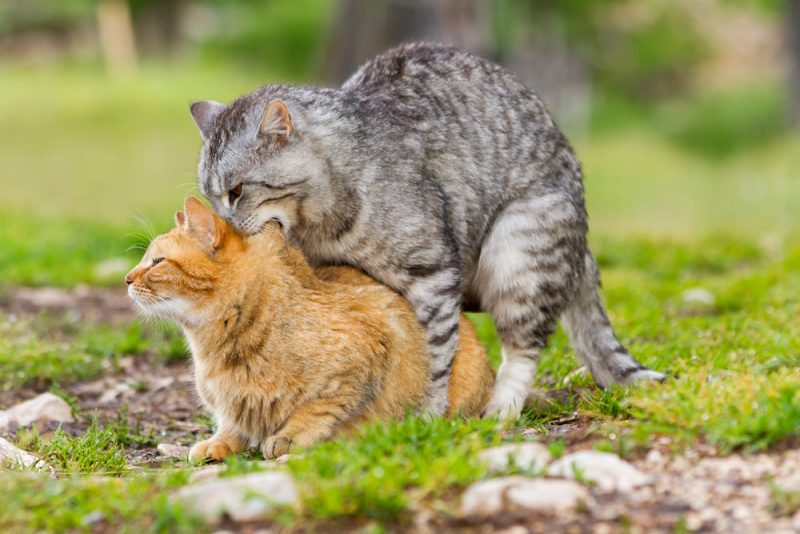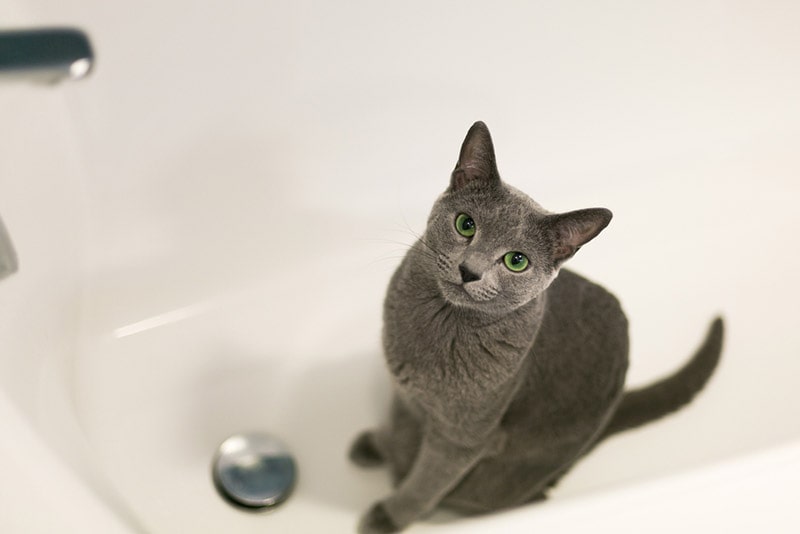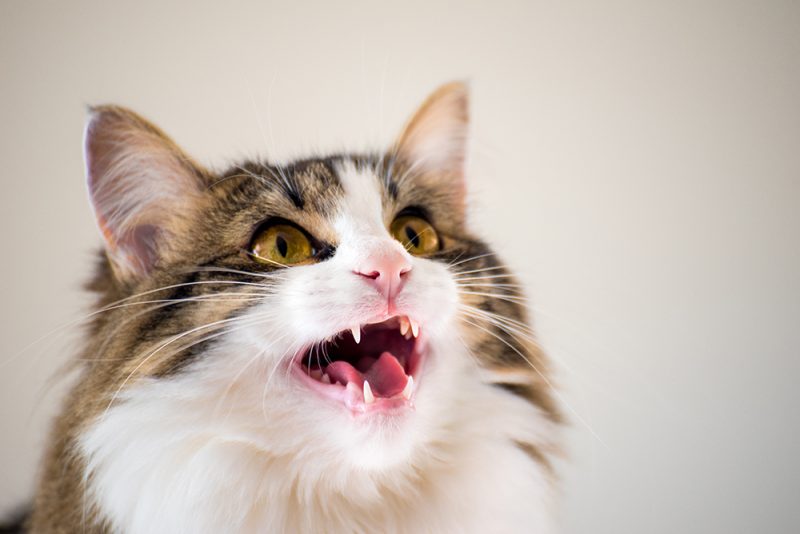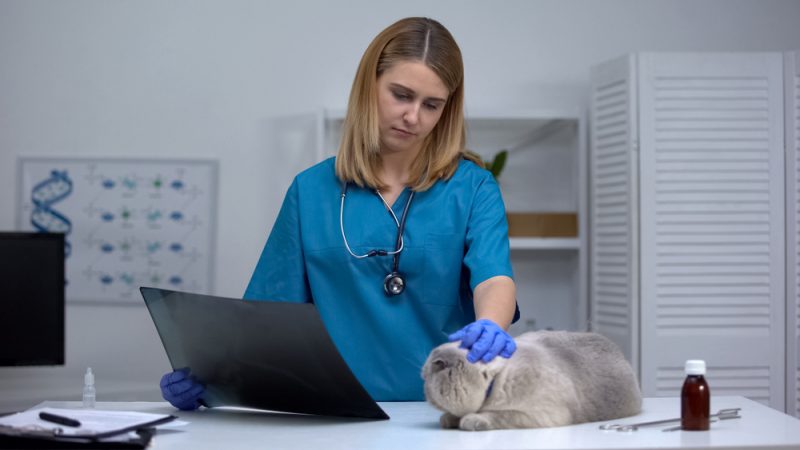In this article
As your cat becomes more senior, it may not be as energetic as he or she once was. You might also notice other behavioral and physical changes that indicate your golden oldie cat needs a little more care and attention to help them stay healthy. If you’re trying to figure out how best to care for your senior cat, check out our 10 tips to help them live their very best life.

When Does a Cat Become a Senior?
Most cats can attain sexual maturity by the time they are around 6 months old, however, they typically reach adulthood when they are around 12-24 months old. In the simplest sense, cats are considered adults when they stop growing physically and attain their maximum size.
Cats are considered adults until they are around 11 years old. Any cat aged 11-14 years old is typically considered a “senior” cat. Senior cats may need a little more care and attention from their owners to help keep them in the best physical health. These special care and attention guidelines continue even beyond the age of 15, which is when a cat is typically considered a geriatric.
The 12 Tips for How to Care for Senior Cats
1. Keep an Eye on Your Cat’s Weight
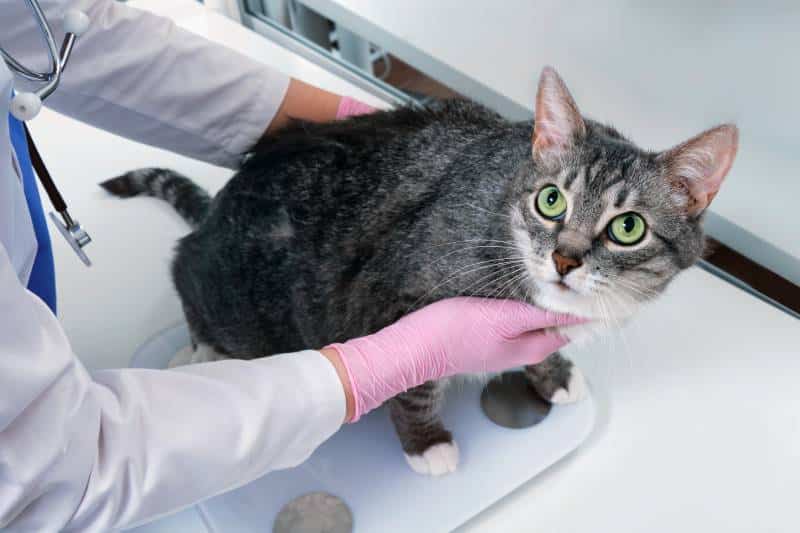
Changes in your cat’s weight can indicate that they may be suffering from a health problem.
- A sedentary lifestyle
- A reduction in exercise (from issues such as osteoarthritis)
- Inappropriate nutrition (overfeeding)
- Hypothyroidism
- Diabetes (early stages)
- Progressive kidney disease
- Inappropriate nutrition (underfeeding)
- Hyperthyroidism
- Addison’s Disease
- Diabetes (prolonged)
- Various cancers
It can be difficult to visually notice subtle changes in weight, so you may decide to weigh your cat once a week to keep a closer eye on things. A vet can also show you how to assess your cat’s body condition. If your cat loses or gains weight unexpectedly, the best thing to do is book them in for a consultation with a vet.
If you need to speak with a vet but can't get to one, head over to PangoVet. It's an online service where you can talk to a vet online and get the advice you need for your pet — all at an affordable price!

2. Monitor Their Food Intake
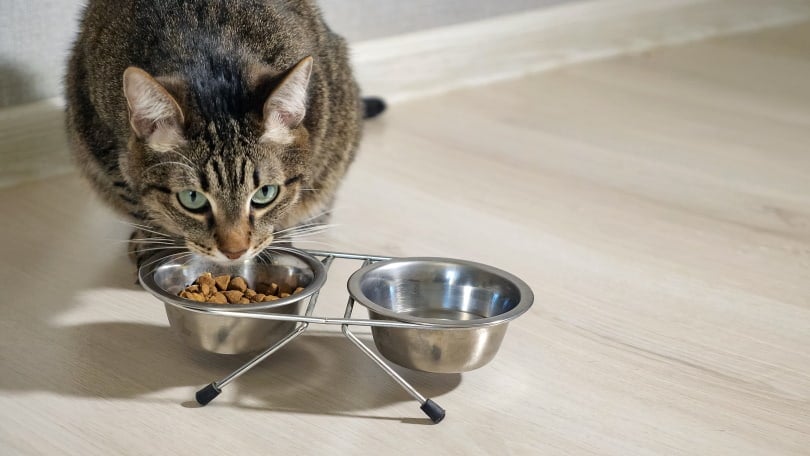
Check how much your cat is eating, as senior cats will often have a reduced appetite if they’re not feeling 100%. You could switch your cat to a food designed specifically for senior cats or offer them highly palatable wet food to encourage them to eat. Many people prefer to feed their senior pets several small meals throughout the day. They also consider using an automatic feeder if you want to make sure your cat has access to regular meals when you’re away from home during the day. A sudden aversion to food can hint at underlying health issues, and should be brought to your veterinarian’s attention promptly.
Another interesting aspect of senior cat care involves the inclusion of dietary supplements in their diet. Unfortunately, many pet owners tend to go overboard with supplements. It is crucial to keep in mind that while supplements can be beneficial, they can sometimes backfire if offered in excess. It is therefore important to seek veterinary advice prior to offering your cat’s supplements with their diet.
3. Make Sure Your Cat is Drinking Enough
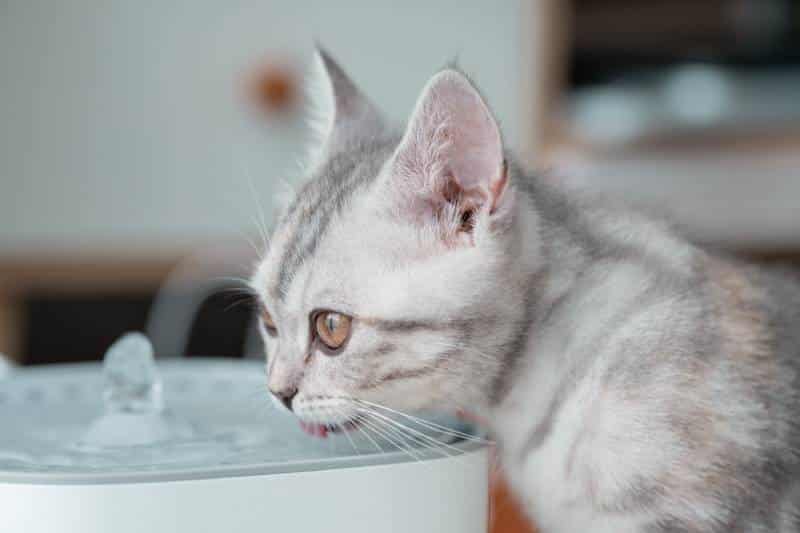
Senior cats may not drink as much as they should, and this can lead to health issues like constipation. Make sure that your cat is drinking enough and that they can comfortably access water whenever they like. If they used to jump onto the counter and drink from the faucet, add a cat water fountain at ground level. You can also feed more wet food to increase your cat’s water intake.
An important aspect of feline nutrition is feeding them species-appropriate foods. Foods with high-quality animal fats are better than foods with starches and other carbohydrates because fat can yield more water for your pet due to the metabolic processes that break down fat.
4. Check For Signs of Pain
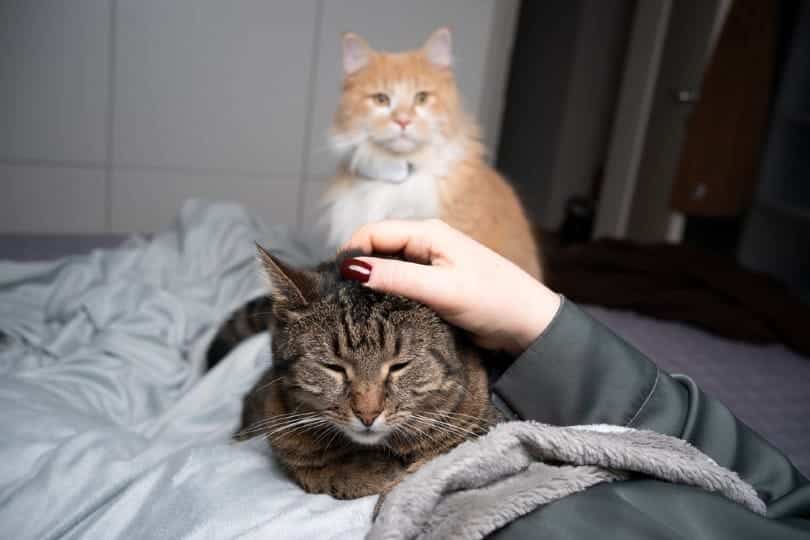
Cats are excellent at concealing their pain and can sometimes be in severe pain before showing any outward signs to their owners. Elderly cats can often be suffering from painful joint conditions that their owners have no idea about until they’re examined by a veterinarian.
- Your cat is isolating themselves and hiding
- Your cat is lethargic
- Your cat is unable to reach places they previously used to (like a couch, their litter box, or their bed)
- Your cat refuses to eat
- Your cat’s gait appears to be altered
- Your cat lashes out when touched somewhere
- Your cat is not grooming themselves and appears unkempt
- Your cat feels very warm to the touch and sits with a hunched posture
- Your cat randomly vocalizes in pain, especially when they use the litter box
Please note that this list isn’t exhaustive. As a general rule, if you feel like something is wrong with your senior cats, trust your instincts – after all, you have known their mannerisms for over a decade and if something seems off, it likely warrants veterinary attention.
5. Provide Soft & Warm Beds
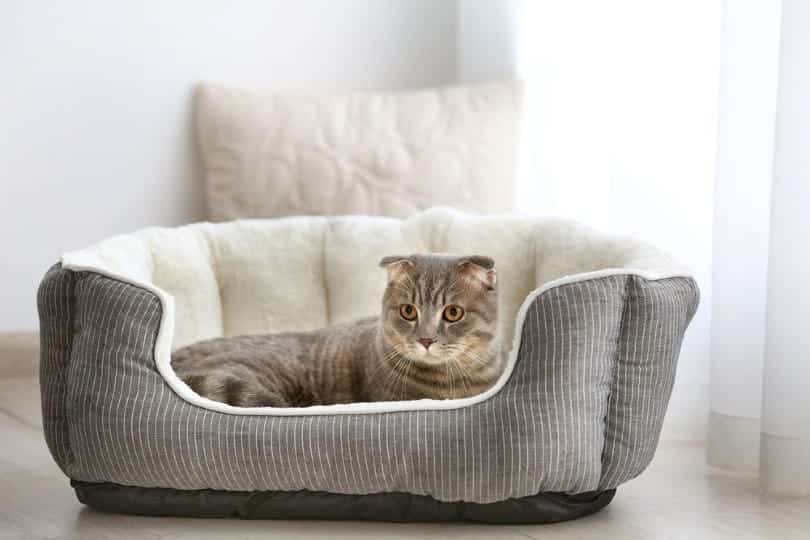
As your cat ages, their joints may become stiff and painful. Where once they may have enjoyed stretching out on the kitchen tiles for a nap, they might now prefer a softer bed. Make sure your cat has plenty of options when it comes to sleeping spots. You might like to treat them to a heated cat bed for the winter, to help them stay comfortable and warm.
6. Help Groom Your Cat
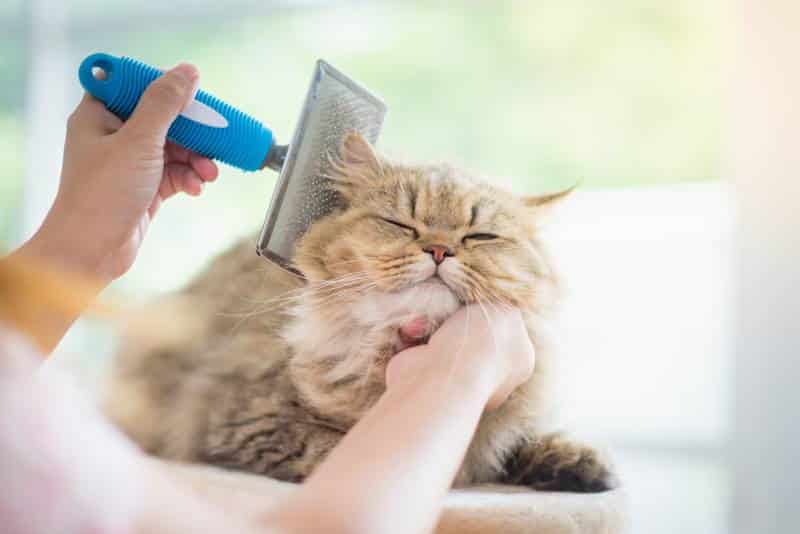
Osteoarthritis and issues with mobility don’t just warrant soft beds – they can also limit your cat’s mobility in other ways. A senior cat may find it difficult to groom themselves as effectively as they once could, especially if their flexibility is limited in their senior cats. For such cats, it’s very beneficial to assist with grooming. Not only does this keep their coat looking immaculate, it also helps you bond with your pet and examine them more closely during the grooming process for potentially concerning signs.
7. Monitor Your Cat’s Litter Box
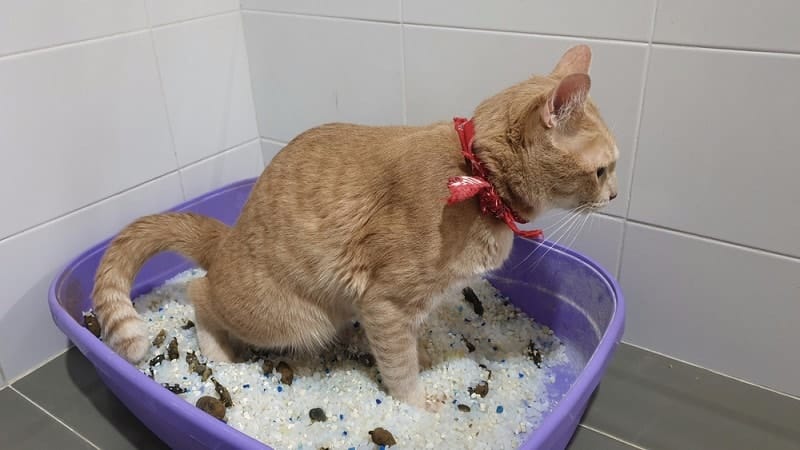
Keeping an eye on your cat’s habits in the litter box is a good way to assess if something is amiss. Senior cats may be susceptible to issues with their urinary system or digestive system, which can lead to a change in their litter box habits. Make a note of what’s typical for your cat, and if anything seems out of the ordinary, you may want to speak to your vet. Make sure the litter box is easy for your cat to access, without sides that are uncomfortably high for them to climb over.
If your senior cat appears to not be able to pass urine, seek veterinary care immediately, as this is a life threatening emergency.
It’s also important to keep track of incidents when your senior cat seemingly “misses” the litter box, as these can be indicative of issues such as feline cognitive dysfunction, which is also a possibility in senior cats. Such cats may experience memory loss and at times have accidents outside the litter box.
8. Watch For Changes in Behavior
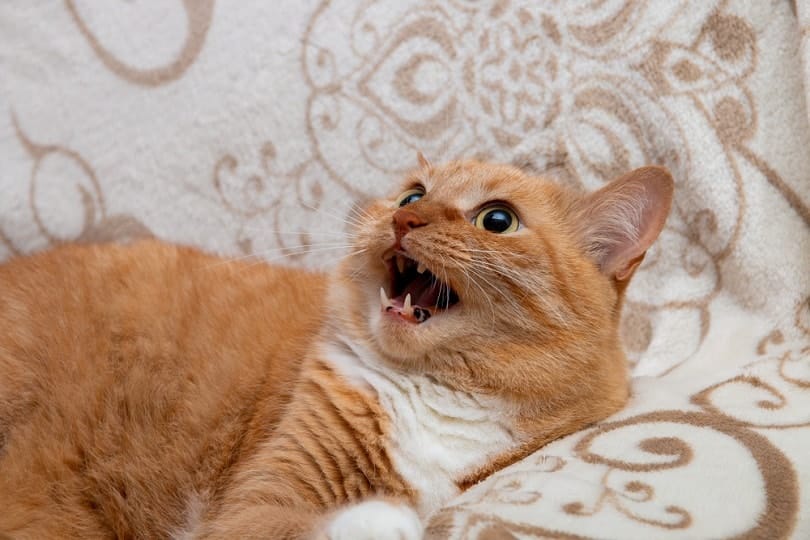
As previously mentioned, senior cats can start to suffer from feline cognitive dysfunction, or issues involving the nervous system which lead to alterations in their behavior.
- Confusion and disorientation
- Changes to sleep patterns
- Changes in behavior
- Lack of grooming
- Reduced interest in food
- Not using the litter box
- Excessive vocalization
- Randomly circling around
- Head pressing against a wall or any other surface
- Unexplained falls
9. Schedule 6-monthly Vet Check-ups
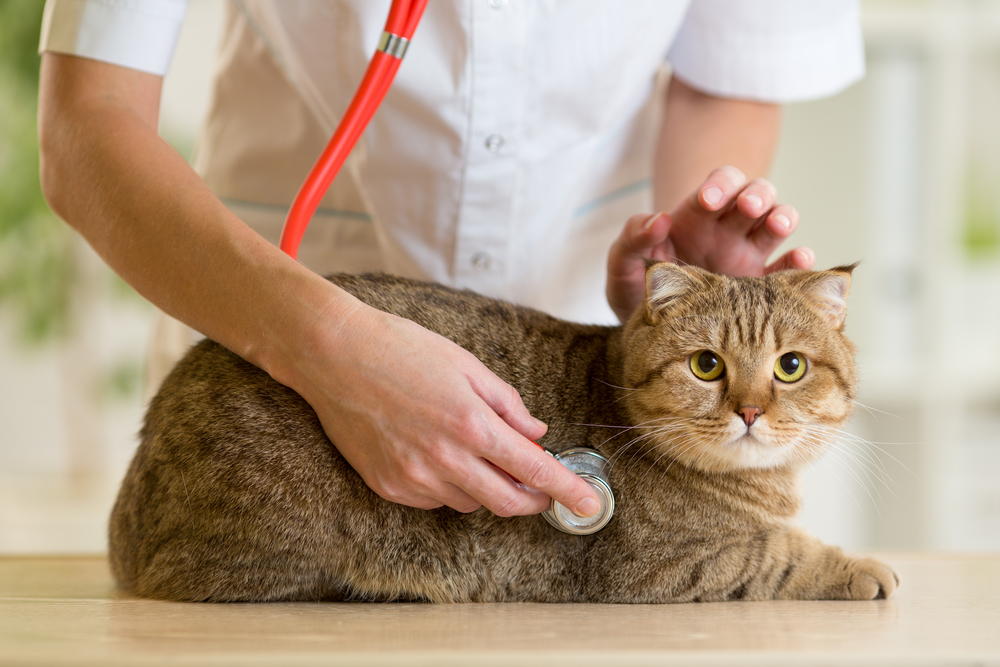
For healthy adult cats, an annual check-up is recommended, but healthy senior cats should see the vet every 6 months. This allows you to pick up on the early signs of any illnesses and come up with a treatment plan. Your vet may want to run blood work and check your cat’s teeth, weight, and overall health. If you notice anything worrying, like weight loss or a dull and greasy coat in between check-ups, call your vet and schedule an appointment.
10. Encourage Your Cat to Exercise

As your cat ages, they might not be as active as they once were, but they still need plenty of physical and mental stimulation. Your elderly cat might not be able to jump into their high cat hammock anymore, so consider placing it nearer the floor. If they have a favorite sleeping spot that’s high up, add a ramp so they can still access it safely. Your older cat may enjoy playing with less physically demanding toys, so consider offering them food puzzles or soft kicker toys rather than anything that requires them to chase or pounce.
Encouraging your cat to exercise by doing simple tasks, such as taking them for a walk (if they are leash trained) can help your cat stay active during their senior years. A cat wheel can also be used for indoor cats to encourage more exercise, as your pet will be able to pace themselves on the wheel.
11. Give Your Cat as Much Attention As You Can
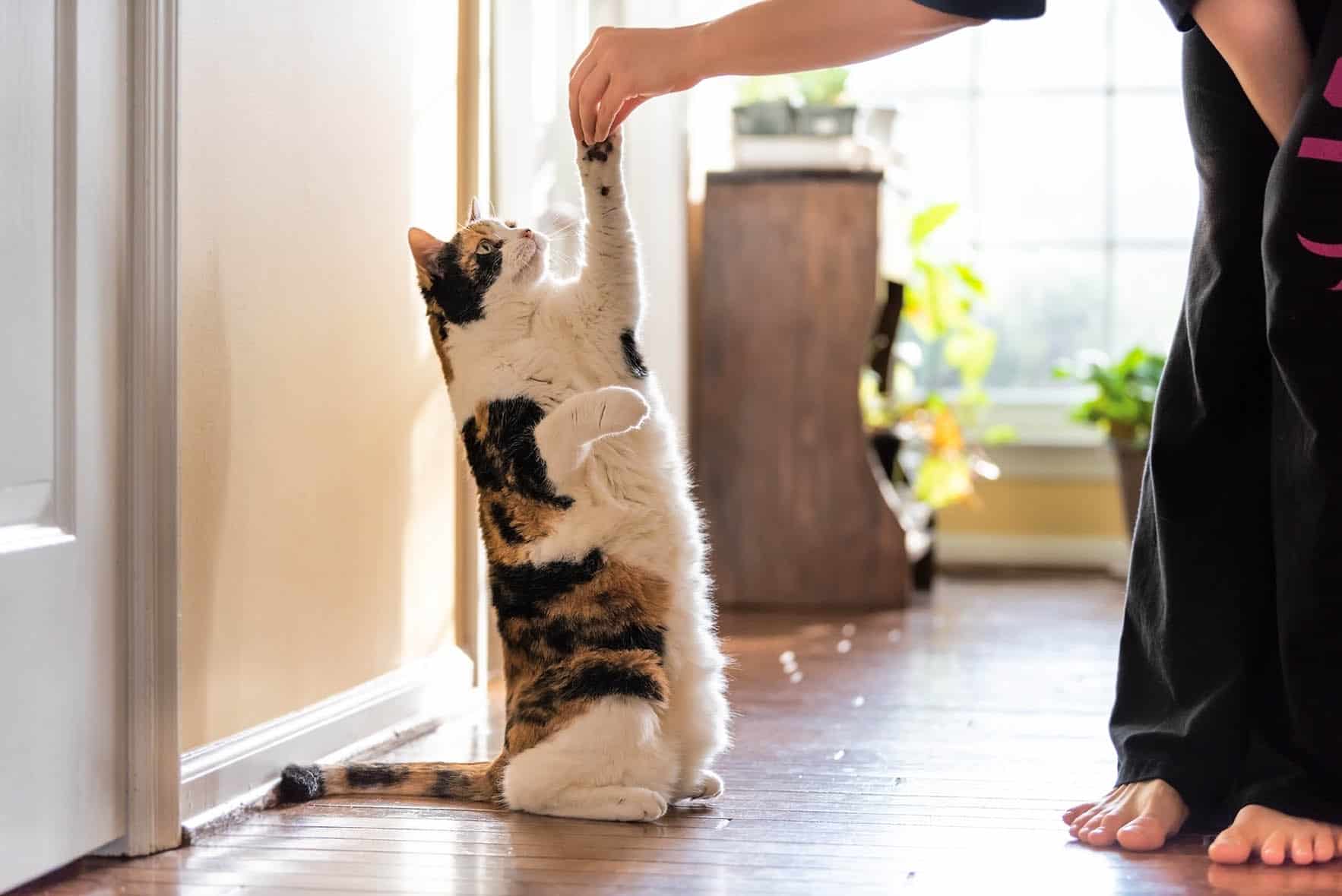
Senior cats might spend more time sleeping or resting, but they will still appreciate plenty of love and affection from their owners. You may need to groom your cat more often if they have trouble reaching certain parts of their coat or trim their nails more often if they’re not able to stretch out onto their scratching post. After all the joy and love that our cats gave us their whole lives, looking after them as best we can once they’re a senior is the least we can do for our furry friends.
12. Congratulate Yourself
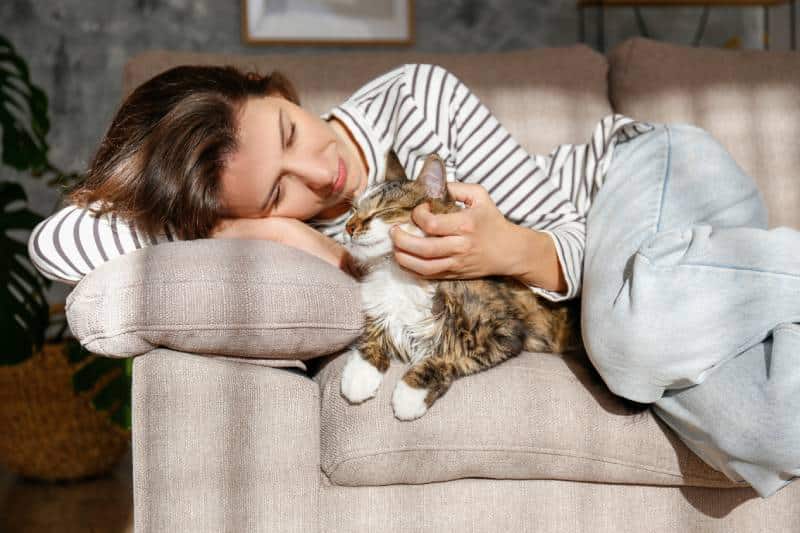
Taking care of a senior pet is no easy feat. Whether your cat has entered their senior years after spending years with you, or whether you’ve adopted a senior pet, it’s very important to remember to not be too hard on yourself whenever unexpected health issues come up with your pet.
It’s very important to congratulate yourself from time to time for successfully getting your cat to their senior years. Though the care of your cat’s senior years can definitely be more exhaustive, the fact that you’re experiencing these challenges goes to show that you’ve done a great job with your pet thus far!

Conclusion
Senior cats are very rewarding pets, but they’re not without some challenges. However, with some extra attention and adjustments, you can make a very positive impact on your senior pet’s health and quality of life. In this article, we’ve offered some tips that we hope you accomplish.
Though the care of senior pets can be challenging at times, it’s important to not be overly critical of yourself if your senior pet seems to experience an ailment or issue. Instead, you should congratulate yourself for caring for your pet to the best of your ability, and remember that your veterinarian is always there to offer advice whenever you feel overwhelmed with regards to your pet’s needs.
See also:
- 8 Senior Cat Health Issues to Be Aware Of (Vet Answer)
- Signs an Older Cat is in Pain: 8 Vet-Reviewed Indications
Featured Image Credit: evrymmnt, Shutterstock
